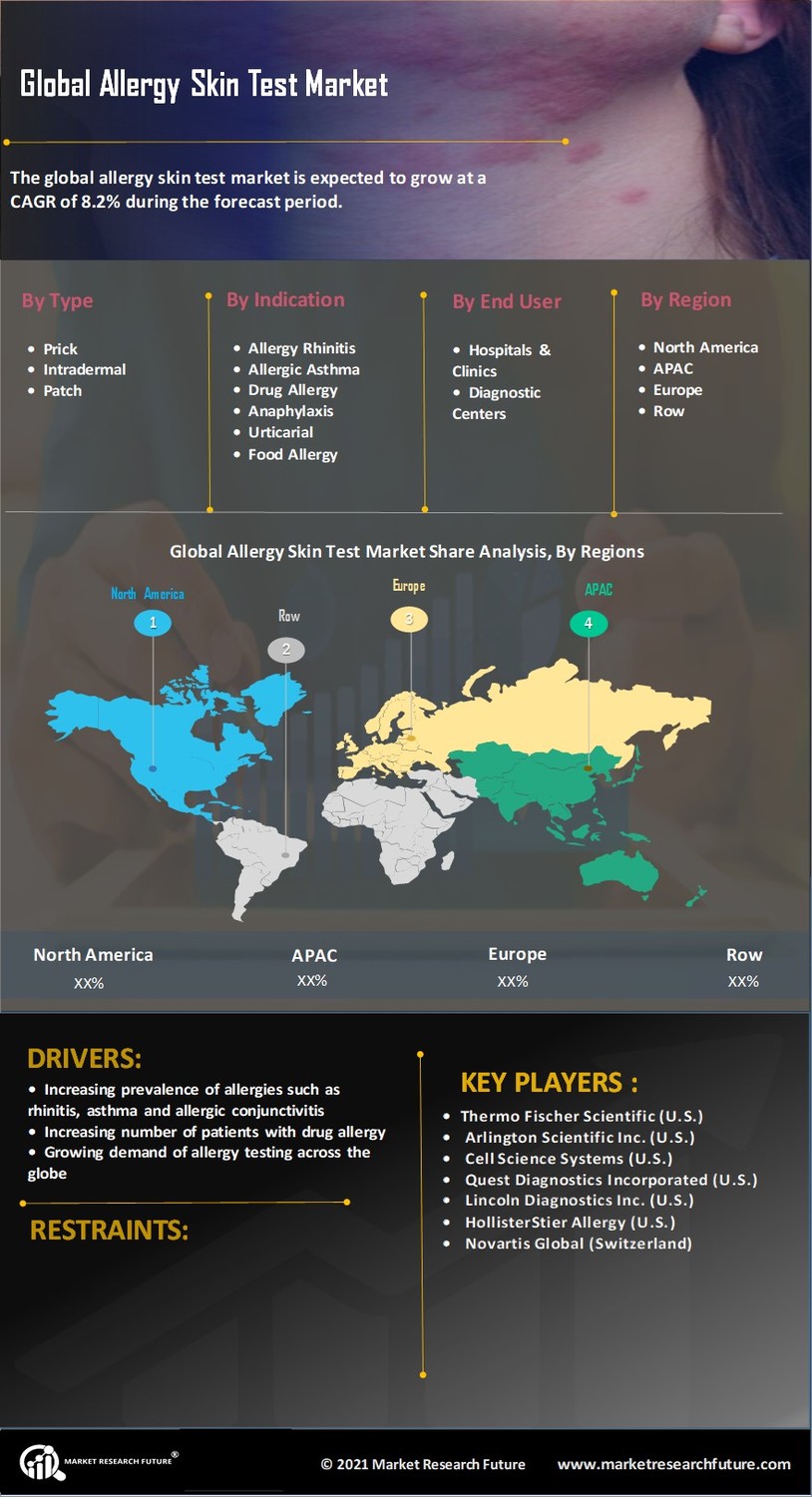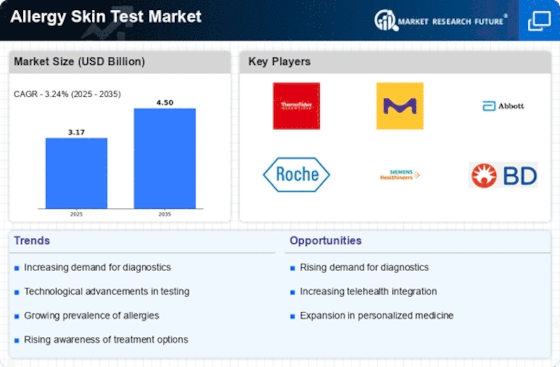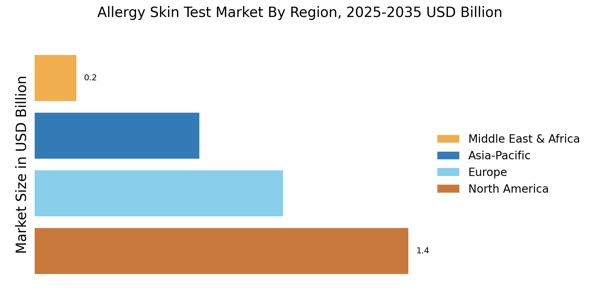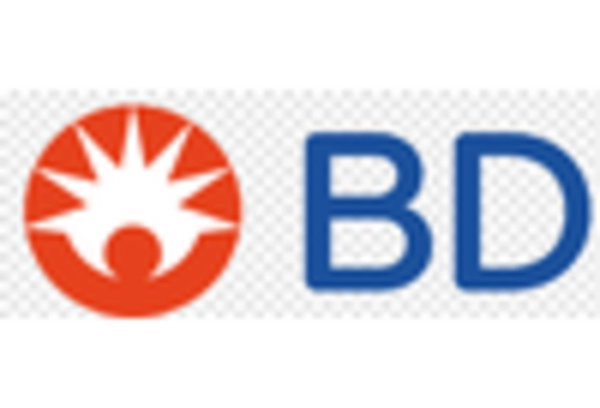Rising Allergy Prevalence
The Allergy Skin Test Market is experiencing growth due to the increasing prevalence of allergies worldwide. According to recent data, approximately 30% of the global population suffers from some form of allergic condition. This rising incidence is prompting healthcare providers to seek effective diagnostic tools, such as allergy skin tests, to identify allergens. The demand for these tests is further fueled by the need for personalized treatment plans, as understanding specific allergies can lead to more effective management strategies. Consequently, the Allergy Skin Test Market is likely to expand as more individuals seek testing to address their allergy concerns.
Growing Awareness of Allergies
There is a notable increase in public awareness regarding allergies and their potential impact on quality of life. Educational campaigns and information dissemination about allergic conditions are contributing to a more informed patient population. As individuals become more aware of the symptoms and risks associated with allergies, they are more likely to seek testing and diagnosis. This heightened awareness is driving the demand for allergy skin tests, as patients actively pursue solutions to manage their conditions. Consequently, the Allergy Skin Test Market is likely to benefit from this trend, as more individuals recognize the importance of allergy testing.
Increased Healthcare Expenditure
The Allergy Skin Test Market is also influenced by rising healthcare expenditures across various regions. As governments and private sectors allocate more funds towards healthcare, there is a growing emphasis on preventive care and early diagnosis of allergies. This trend is likely to drive the demand for allergy skin tests, as healthcare providers seek to implement effective diagnostic tools to manage allergic conditions. The increased investment in healthcare infrastructure and services is expected to bolster the Allergy Skin Test Market, making allergy testing more accessible to a broader population.
Regulatory Support and Guidelines
The Allergy Skin Test Market benefits from supportive regulatory frameworks that encourage the development and use of allergy testing methods. Regulatory bodies are increasingly recognizing the importance of accurate allergy diagnosis, leading to the establishment of guidelines that promote the use of skin tests. These guidelines not only enhance the credibility of allergy testing but also ensure that patients receive reliable results. As healthcare providers adhere to these regulations, the Allergy Skin Test Market is expected to see a rise in the adoption of skin tests, thereby improving patient outcomes and satisfaction.
Advancements in Testing Technology
Technological innovations are playing a crucial role in shaping the Allergy Skin Test Market. Recent advancements in testing methodologies, such as the development of more precise and efficient skin prick tests, are enhancing the accuracy of allergy diagnoses. These innovations are likely to reduce the time required for testing and improve patient comfort, which may lead to increased acceptance of allergy skin tests among patients. As technology continues to evolve, the Allergy Skin Test Market is poised for growth, with new products and techniques emerging to meet the demands of healthcare providers and patients alike.


















